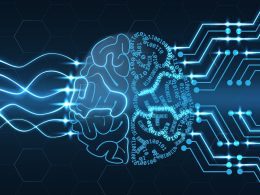Debunking Myths Surrounding Neurodevelopmental Disorders
Neurodevelopmental are a group of conditions that affect brain development and functioning from early childhood. These disorders, such as autism spectrum disorder (ASD), attention-deficit/hyperactivity disorder (ADHD), and intellectual disability, can have significant impacts on an individual’s daily life. Unfortunately, misinformation and misconceptions about neurodevelopmental disorders abound, leading to misunderstandings and stigma. In this article, we aim to debunk common myths surrounding these conditions while providing accurate information for better understanding.
Introduction to Neurodevelopmental Disorders
Neurodevelopmental disorders are characterized by impairments in cognitive, emotional, social, or physical functioning that arise during early developmental stages. They typically manifest in childhood but can persist into adulthood. Contrary to some beliefs, neurodevelopmental disorders are not caused by bad parenting or environmental factors like vaccines; they are complex conditions with various underlying causes.
Common Myths About Neurodevelopmental Disorders
Let’s address some prevalent myths surrounding neurodevelopmental disorders:
Autism is solely caused by vaccines
Fact: Extensive research has repeatedly shown no link between vaccines and autism. The consensus among medical professionals is that genetics plays a significant role in the development of autism spectrum disorder.
ADHD is just a result of laziness or lack of discipline
Fact: Attention-deficit/hyperactivity disorder (ADHD) is a neurobiological condition characterized by difficulties with attention regulation and impulse control. It is not simply a matter of laziness or poor discipline.
People with intellectual disabilities cannot lead fulfilling lives
Fact: Individuals with intellectual disabilities have unique strengths and abilities that should be recognized and nurtured appropriately within their capabilities.
Fact: Many neurodiverse individuals excel in various fields, including science, technology, arts, and entrepreneurship. With the right support and accommodations, they can thrive in their chosen paths.
Causes and Risk Factors
Neurodevelopmental arise from a complex interplay of genetic and environmental factors. It is vital to understand that these conditions are not the result of poor parenting or personal shortcomings. Genetic predispositions combined with certain environmental influences contribute to the development of neurodevelopmental disorders.
Researchers have identified specific genes associated with these conditions. Additionally, factors such as prenatal exposure to toxins, maternal infections during pregnancy, premature birth, and low birth weight may increase the risk of developing these disorders.
Symptoms and Diagnosis
Diagnosing neurodevelopmental disorders can be challenging due to their diverse symptoms that vary between individuals. Common signs include difficulties with social interactions, communication challenges (verbal or non-verbal), repetitive behaviors or restricted interests, impulsivity, hyperactivity (in ADHD), intellectual impairment (in intellectual disability), and sensory sensitivities.
Effective Management Strategies
Managing neurodevelopmental involves tailored approaches designed to address individual needs effectively. Here are some evidence-based strategies:
Therapy Options:
Behavioral therapies like Applied Behavior Analysis (ABA) can help develop skills for daily living tasks,
improve social interactions,
enhance communication abilities,
manage behavioral challenges.
Educational Support:
Individualized Education Programs (IEPs) provide specialized education plans for students with neurodevelopmental.
Classroom accommodations,
modifications based on learning styles,
additional support services
can promote academic success.
Creating a structured environment,
establishing routines,
ensuring proper nutrition and sleep schedules
can significantly benefit individuals with neurodevelopmental disorders.
Medication when necessary:
In some cases, medication may be prescribed to manage specific symptoms associated with neurodevelopmental disorders like ADHD or certain mood-related challenges. It is crucial to consult medical professionals for appropriate diagnosis and treatment recommendations.
Conclusion
In conclusion, debunking myths surrounding neurodevelopmental is essential for fostering understanding and empathy towards individuals living with these conditions. Neurodevelopmental disorders are not caused by vaccines or bad parenting; they have complex genetic and environmental origins. With accurate information, we can dispel misconceptions, reduce stigma, and provide better support for those affected by neurodevelopmental disorders. By embracing the diversity of human neurological development, we can create a more inclusive society that celebrates the strengths of every individual regardless of their unique abilities.












